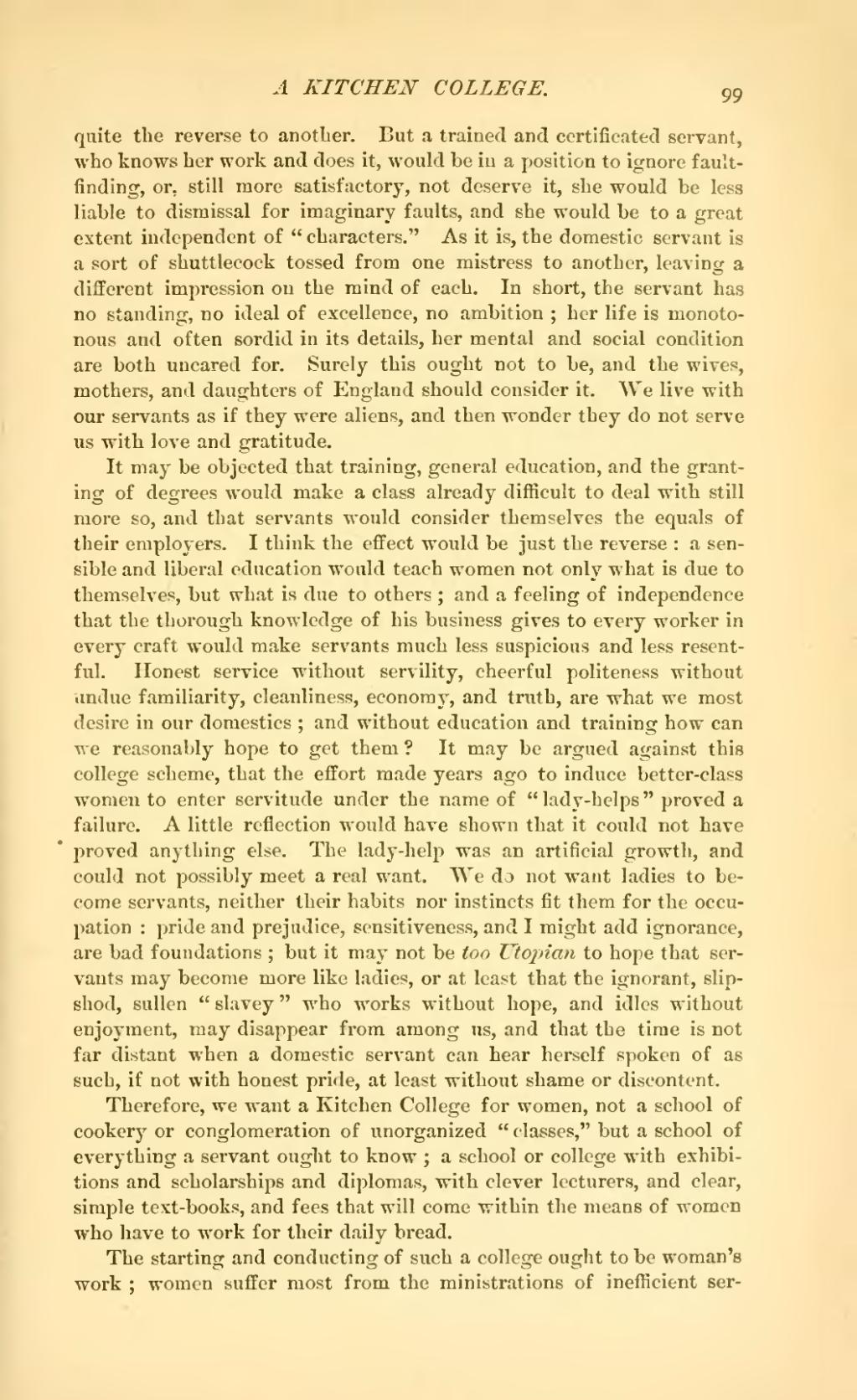quite the reverse to another. But a trained and certificated servant, who knows her work and does it, would be in a position to ignore faultfinding, or, still more satisfactory, not deserve it, she would be less liable to dismissal for imaginary faults, and she would be to a great extent independent of "characters." As it is, the domestic servant is a sort of shuttlecock tossed from one mistress to another, leaving a different impression on the mind of each. In short, the servant has no standing, no ideal of excellence, no ambition; her life is monotonous and often sordid in its details, her mental and social condition are both uncared for. Surely this ought not to be, and the wives, mothers, and daughters of England should consider it. We live with our servants as if they were aliens, and then wonder they do not serve us with love and gratitude.
It may be objected that training, general education, and the granting of degrees would make a class already difficult to deal with still more so, and that servants would consider themselves the equals of their employers. I think the effect would be just the reverse: a sensible and liberal education would teach women not only what is due to themselves, but what is due to others; and a feeling of independence that the thorough knowledge of his business gives to every worker in every craft would make servants much less suspicious and less resentful. Honest service without servility, cheerful politeness without 'undue familiarity, cleanliness, economy, and truth, are what we most desire in our domestics; and without education and training how can we reasonably hope to get them? It may be argued against this college scheme, that the effort made years ago to induce better-class women to enter servitude under the name of "lady-helps" proved a failure. A little reflection would have shown that it could not have proved anything else. The lady-help was an artificial growth, and could not possibly meet a real want. We do not want ladies to become servants, neither their habits nor instincts fit them for the occupation: pride and prejudice, sensitiveness, and I might add ignorance, are bad foundations; but it may not be too Utopian to hope that servants may become more like ladies, or at least that the ignorant, slipshod, sullen "slavey" who works without hope, and idles without enjoyment, may disappear from among us, and that the time is not far distant when a domestic servant can hear herself spoken of as such, if not with honest pride, at least without shame or discontent.
Therefore, we want a Kitchen College for women, not a school of cookery or conglomeration of unorganized "classes," but a school of everything a servant ought to know; a school or college with exhibitions and scholarships and diplomas, with clever lecturers, and clear, simple text-books, and fees that will come within the means of women who have to work for their daily bread.
The starting and conducting of such a college ought to be woman's work: women suffer most from the ministrations of inefficient ser-
